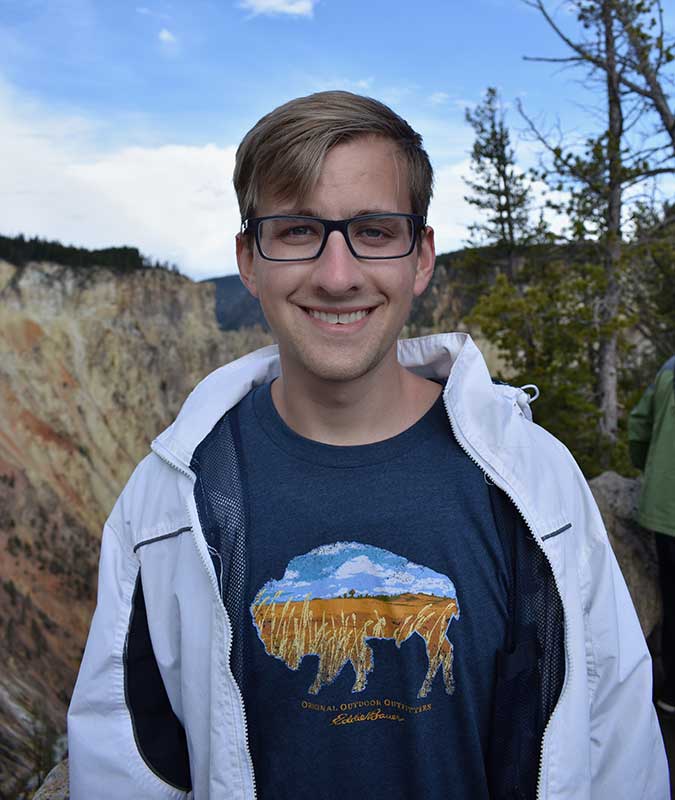Meet a Participant: Anthony Gruber

While completing his internship with the National Science Foundation’s (NSF) Mathematical Sciences Graduate Internship (MSGI), Anthony Gruber researched geometric methods to enhance the predictive power of models used by scientist and engineers.
Photo Courtesy of Anthony Gruber
Manifold Modeling: Finding a Solution for Estimating Results
Anthony Gruber has always been enamored by science, participating in numerous science fairs and events throughout his childhood and adolescence. In college he studied chemistry, and quickly realized that he preferred the theoretical aspects of the field, rather than the technical laboratory work. Disillusioned by his career prospects as a chemist, Gruber decided to attend graduate school for mathematics. There he quickly realized his passion for the study, and became motivated to pursue a career in the field.
A graduate advisor informed Gruber about the research internship with the National Science Foundation (NSF), and he decided to apply because he was interested in gaining experience outside of academia and wanted to see how mathematics was practiced at a national laboratory. He was later accepted and began his internship at the Oak Ridge National Laboratory (ORNL) in Oak Ridge, Tennessee.
The National Science Foundation’s (NSF) Mathematical Sciences Graduate Internship (MSGI) Program provides research opportunities for mathematical sciences doctoral students; allowing them to participate in internships at national laboratories, industries and other facilities. NSF MSGI seeks to provide hands-on experience for the use of mathematics in a nonacademic setting.
Gruber’s research focused on manifold modeling techniques for data approximation and analysis. In other words, he researched techniques that allow other scientists and engineers to use predictive models more easily. The particular project that Gruber and his mentor Robert Bridges helped to develop, Active Manifolds, uses geometric methods to try and accomplish this goal. To do this, Gruber had to learn how to write code using Python, and also how to compose papers for nonacademic audiences.
When asked about how his research will affect the average person, Gruber says that his efforts will allow for better approximations of experiment results, when exact results aren’t obtainable due to reasons such as cost or time required. In a more practical sense, Gruber says that in the future, if his team’s methods are implemented, the average person would likely see improved accuracy in scientific models, particularly those based in engineering or physics.
Gruber notes how the experience that he gained through the NSF MSGI Internship has shaped his career options and goals moving forward:
“What I enjoyed most was the opportunity to learn how research is conducted in a non-academic setting. It was nice to discover that the research done at national laboratories is serious, and that there are research jobs available outside of universities…I now have both knowledge and skills that I didn’t have before, and that will help me should I decide to pursue a laboratory career.”
Gruber says that he would recommend the NSF MSGI program to any mathematician who has an interest in gaining research experience outside of academia. He notes the laboratory experience as invaluable when choosing a career path.
Moving forward, Gruber plans on finishing his PhD at Texas Tech University and then applying for a research position at a national laboratory.
The NSF MSGI Program is funded by NSF and administered through the U.S. Department of Energy’s (DOE) Oak Ridge Institute for Science and Education (ORISE). ORISE is managed for DOE by ORAU.


